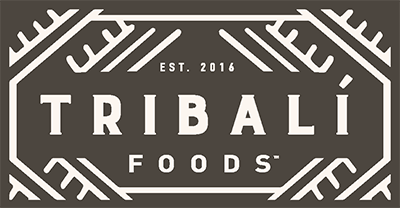
If the Keto Diet was the most Googled term last year, then we are certain intermittent fasting (IF) will make the list this year. You may already be familiar with ways of eating like Keto, Paleo, Vegan or Whole30, but you may be completely new to intermittent fasting. If you are wondering “What is intermittent fasting,” consider this your go-to beginner’s guide for intermittent fasting.
*Important Note: If you are considering intermittent fasting, it is important to consult with your doctor, primary care physician or certified health coach before beginning an intermittent fasting protocol.
What is fasting?

The term fasting usually applies to a period of time where you go without food and water. Many of us may have been asked to fast prior to blood tests, medical procedures and surgeries. If you think you have never fasted before, think of breakfast. Breakfast is the first meal of the day in which you are breaking a fast from a night of sleep. (See, you have fasted before). Fasting may seem rather simple, it’s a period of time when you are not eating, but when you begin to think of the logistics, certain questions may come to mind that can make fasting complicated. Let’s answer a few that may come to mind.
What are the different types of intermittent fasting?
Intermittent fasting is a broad term that describes a variety of different fasting protocols, but the most common type of intermittent fasting is time-restricted feeding. Time-restricted feeding is a form of intermittent fasting in which you limit the amount of time you spend eating each day. For example, this could mean maintaining a 12 hour window between dinner and breakfast or you could practice a longer “brunch” fast where you complete a 16 hour-fast. This means you would eat dinner at 8pm and then not eat breakfast until 16 hours later at noon. Some individuals who are experienced at fasting may even fast for longer periods of time where they practice a fast for 20 hours and then have a 4 hour eating window. However, if you are new to fasting, this is not recommended.
What are the benefits of intermittent fasting?
On the most basic level, fasting simply offers your digestive system a much needed break for all of the hard work it does every single day. Although intermittent fasting is primarily known to help with weight loss efforts, IF has a host of other benefits including improved metabolic health and improvements in risk indicators for cardiovascular disease and type 2 diabetes. Fasting may even help your brain ward off neurodegenerative diseases like Alzheimer’s and Parkinson’s while at the same time improving memory and mood. Not only does fasting deliver these benefits, but it also activates autophagy, a process in which weak cells die off, essentially making room for newer, healthier, stronger cells.
How do I begin intermittent fasting?

Before beginning an intermittent fasting protocol first speak to your doctor, primary care physician or certified health coach. After that, follow these tips to help you begin intermittent fasting:
- Limit the hours of the day when you eat. For example, eat breakfast at 8am then make sure you have dinner by 8pm, that way your body has a full 12 hours to fast between dinner and breakfast.
- When fasting, stick to water, herbal tea and black coffee. The minute you consume calories, you break the fast, so stick to these beverages when fasting.
- Give your body a break in between meals by avoiding snacking, especially at nighttime before bed.
- Break your fast with a substantial meal that is full of better for you fats, fiber, protein and vegetables. Need some recipe ideas? Check out some of ours like this Sweet Potato Breakfast Hash or this Chipotle Chicken Avocado Toast. (Yum!)
Intermittent fasting doesn’t have to be confusing. Use this simple guide to intermittent fasting to begin incorporating this health and wellness practice into your lifestyle.

HELLO@TRIBALIFOODS.COM >
your mind — we’re glad to help!
hello@tribalifoods.com
your mind — we’re glad to help!
hello@tribalifoods.com








